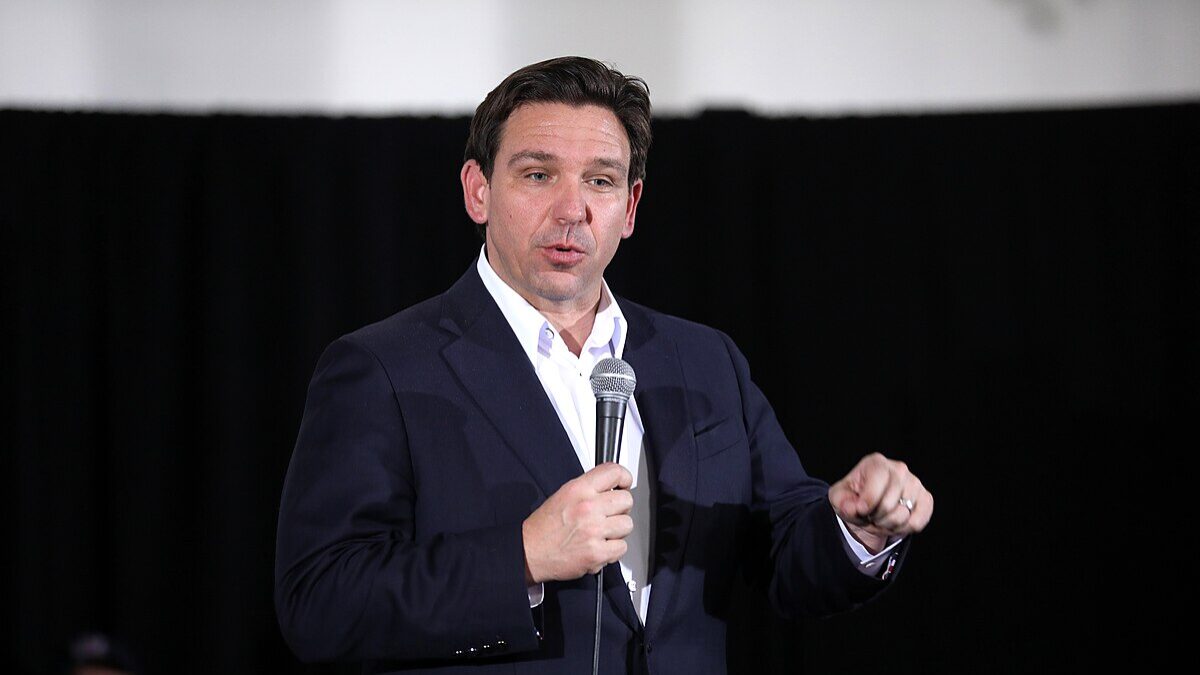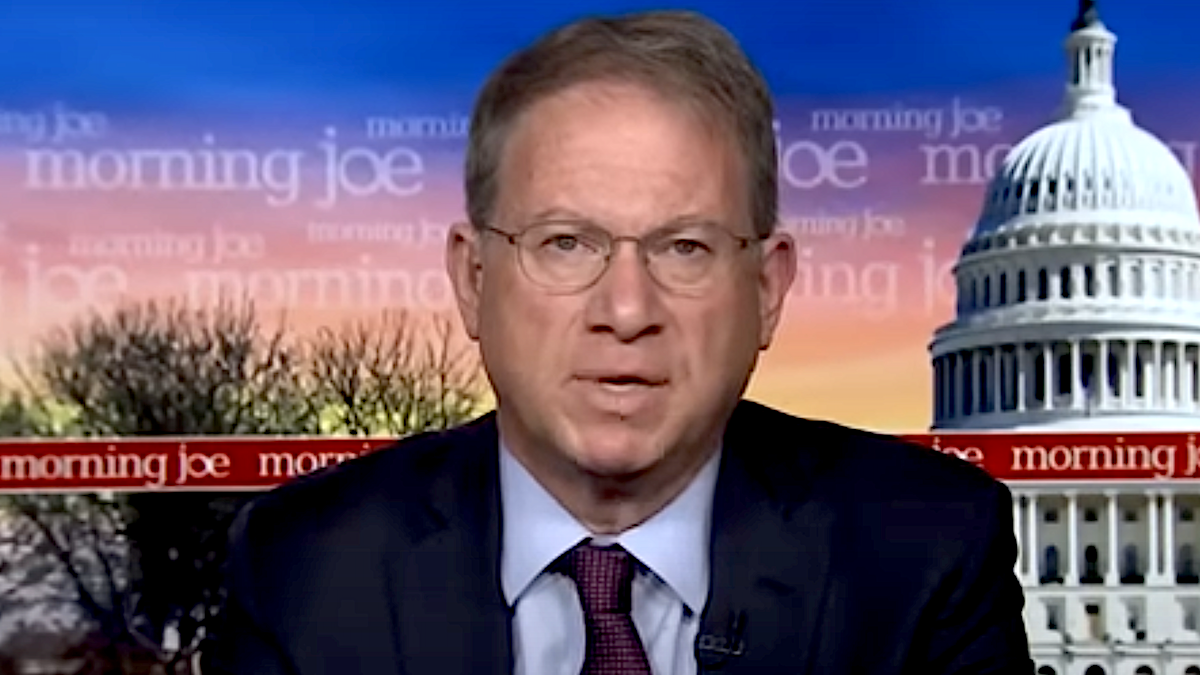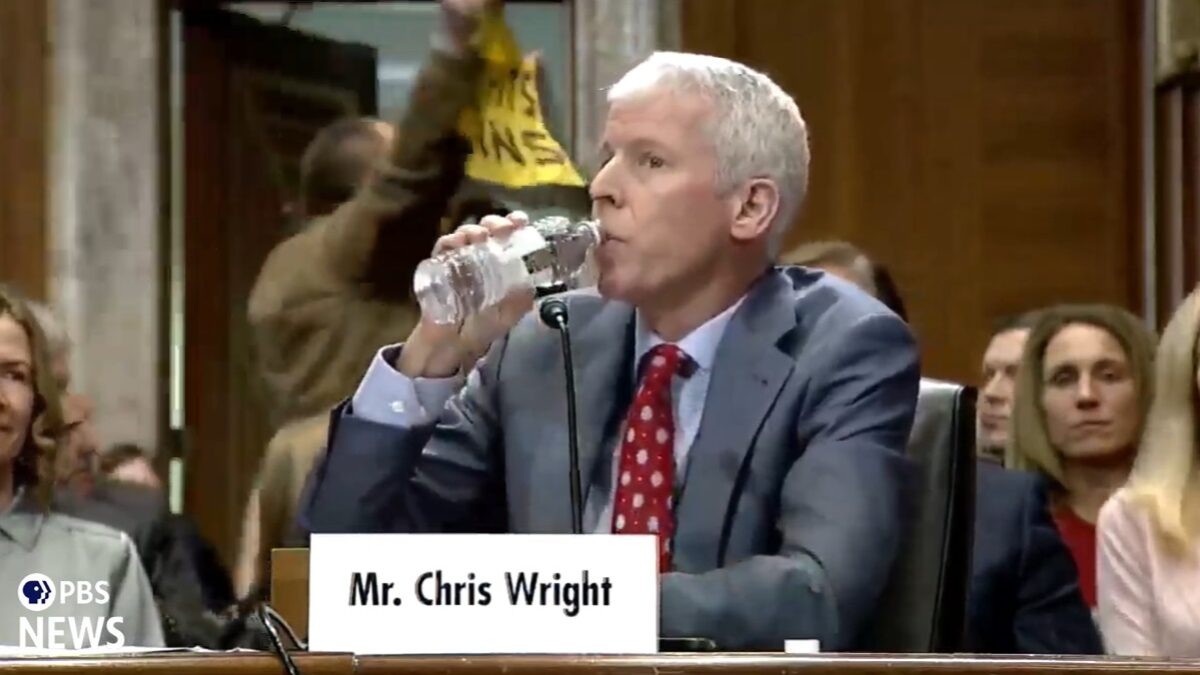
We probably all know at least one: the person who comes to a family gathering primed to talk about politics – particularly, to let you know why their view is right, and yours is dead, dead wrong. These are the worst kind of guests. They have no interest in catching up and spending a brief moment in time out of the precious few we get on this earth avoiding politics. Insufferable in their insistence in turning the conversation into Crossfire, they can’t even take a holiday from partisanship and just be happy to ask someone to pass the gravy.
Thanks to the White House and Organizing for Action, there may be a marked increase in such guests this holiday season, thanks to this push to have you come to Thanksgiving dinner – and the other holidays too! – with your administration-approved talking points in hand. Oh frabjous day indeed.
President Obama has done a lot of things I dislike, but ruining Thanksgiving and Christmas dinner is a bit much. And to let him be clear: that’s exactly what he’s doing. Instead of letting families argue about perfectly reasonable things to discuss over holiday dinners – such as when Mike Shanahan should be fired, which Bound 2 parody is the best, and whether Miley Cyrus should be launched into the sun for the good of humanity – the president wants to insist on inserting his priorities into family gatherings across the country. “I understand you worked hard to brine this bird, but let’s refocus on what matters: why you haven’t signed up at healthcare.gov yet. Did you hear it’s getting much better? Don’t talk about the Iron Bowl or Aunt Jenny’s wedding, let’s turn this conversation back to what really matters: avoiding a death spiral and ensuring stability in the insurance market!”
We’ve certainly come very far from an era when people of different political mind were urged to set aside their differences and come together for a meal and football and gather round the hearth in peace. Instead we’re in the era of “argue with your neighbors, get in their face”. Maybe it’s that social media sparring fuels these political grudge matches, or that political allegiances are worn less as choosing between the lessers of evils and more as teams of red and blue. But if you want to talk about death spirals, this is one I wish we’d get out of, and soon. Talking points beget talking points and before you know it the Thanksgiving table has turned into the McLaughlin group, except with the added challenge of your uncle having had six Cranberry Old Fashioneds and a carving knife within handy reach.
What’s more, now that these insufferable partisans in the administration have distributed their talkers, you’re a lot more likely to hear any one of these ten statements at tomorrow’s dinner, to which I am now obligated to offer a prebuttal. And yes, Mr. President, I hate you for making me write this.
1) Healthcare.gov may suck, but state exchanges are performing really well.
No, most of them aren’t. They’re way behind, too. Exchanges such as those in Oregon, Colorado, Maryland, Vermont, Hawaii, and other states which have led the charge in implementation have fallen flat on their faces. Oregon, which had total buy-in at all levels of the state and no political opposition to speak of, has signed up exactly zero people. And while states like California, Connecticut, and Kentucky have had better success, the vast majority of signups in the state exchanges are within Medicaid, not private insurance – in part because the eligibility is easier to determine. But that has negative outcomes as well, as those with private insurance are now required to go on Medicaid – such as this woman in Washington state.
2) The website’s problem is demand and once the front-end problems are fixed, it’ll work great.
No, it’s not – in fact, the website couldn’t even handle 500 visitors without problems according to internal documents from the Centers for Medicare and Medicaid Services, released in hearings last week (the all-caps emails are the best ones). The real problem with the website at this point isn’t capacity at all: it’s the extremely delayed back-end – major portions of which apparently haven’t even been built yet – which are supposed to hand off people to the actual insurers they select, and handle the payments for plans (the point at which people are actually “enrolled”). Collecting these premiums and making sure insurers get them has always been the heaviest lift under Obamacare, and the lack of these systems is far more problematic than just the front-end frustrations of delays and glitches. It’s along the lines of having an Expedia-like site that “works” because you can select your flight, but doesn’t actually have the capability for sellers to charge you, or reserve your ticket. Which is, let’s face it, kind of key. There is no public deadline for these remaining critical fixes, and they’ve already missed their first deadline for the front-end.
3) Only a few young and healthy people will pay more – for most people, they will keep their plans or have something better.
No, actually, premiums are going up just about everywhere, and for most people. In 41 states, premiums in the individual market are going up by an average of 41%. Only eight states – generally those with the most heavily regulated markets – will see premium reductions ranging between 3% and 40%. But according to The Manhattan Institute’s analysis, for those who have it bad, it’s really bad: the eight worst states are seeing huge premium hikes, including Nevada (+179%), New Mexico (+142%), Arkansas (+138%), North Carolina (+136%), Vermont (+117%), Georgia (+92%), South Dakota (+77%), and Nebraska (+74%). While the young and healthy get the brunt of these increases, the older folks aren’t exempt, either – and even if their premiums don’t increase that much, it’s likely they’ll see larger deductibles and narrower networks.
4) The pre-Obamacare health insurance market was a “free market” full of “junk” insurance plans, which screwed people over and dropped their insurance when they got sick.
No, this simply isn’t true. The American health insurance system prior to Obamacare was in some senses the worst of both worlds: one torn between single payer and third party payer, where while most of the care offered was superior to the rest of the world, the chief problem was explosive growth in costs… because no one cares what something costs when someone else is paying for it (in this case, your employer or the government). No one in their right mind would describe a reality in which the government holds so much market sway, and in which consumers have near-zero price transparency, as a free market system. And as for screwing over people who got sick: it’s been illegal for insurers in the employer market to drop people who get sick since 1997 (thanks, HIPAA!). This means the problem only applies to the individual market (10% of private health insurance), where people were dropped less than 4/10ths of 1% of the time, typically after an appeals process. You really want to argue we needed to disrupt the entire marketplace to solve a problem which impacted such a small portion of the population? It would’ve been cheaper to just hand them all a check for higher-subsidized coverage… such as those offered through high risk pools, the type states like Maryland and New Hampshire are trying to keep open since their exchanges are broken. Oh, and if you’re in the employer market and feel left out by all this disruption, don’t worry – you’re next.
5) Obamacare is already controlling health care costs and it’ll eventually control premium costs.
No, it isn’t. Health care spending has actually been on the decline for some time, when measured per capita, in large part because of the economic decline. It’s also possible the dramatic growth of high deductible plans with health savings accounts, which have exploded in popularity since they came into being in 2003, (HSA enrollment has quintupled just since 2006), have factored into the slowdown. These plans behave more like real insurance and less like an overpriced payment plan, and so people behave more like consumers. National health spending per capita rose just 3.7 percent in 2008… two years before Obamacare was enacted. And keep in mind, we’re talking about all health care spending here – not the price of insurance premiums, which Obama promised would be down $2,500 for a family of four. But even analysis by the Congressional Budget Office found in 2009, well before the law passed, that premiums would go up because of Obamacare’s regulatory requirements. Obama didn’t promise premiums would go up by less than estimated, but that they would go down. Since Obamacare has passed, they’ve gone up, and they’re probably going to continue doing so for the foreseeable future… in part because of Obamacare’s faulty exchange design.
6) Once you’re able to get onto the website, you’ll have plenty of cheaper/better choices and be able to qualify for a subsidy.
No, you probably won’t. While the subsidies are generous for people on the lowest income end, many people – even low-income people – will be surprised to find how little the subsidy hides the aforementioned growth in premiums or how expensive the new plans are. And the rate shock they perceive for those premiums will likely be deceptive as well, as ProPublica notes here, because of the increases in deductibles and out-of-pocket co-pays associated with the new policies. Polling data thus far shows one of the major reasons people are coming to the website but not selecting a plan is because they’re surprised by the costs. For many people, $190 a month is absolutely affordable – but for those who weren’t buying insurance when it was $160 a month, they’re balking.
7) When people get covered under Obamacare, they’ll start liking the new system because they’ll get the same health care, but cheaper.
No, they probably won’t get what they expect. While I am amazed by how much the administration has bungled the rollout of the law, the real Achilles’ heel from my perspective has always been the second round of hits: the doc shock as people learn about the newly restricted networks under the plans offered via the exchanges. Many states have one insurer with dominant, near-monopoly market share, and in these states not having a critical hospital in the network can be a major problem for the ill. The best hospitals in the country – the Mayo Clinic, Cedars-Sinai, and other such household names – are typically also the most expensive hospitals in an insurer’s network. This means that the quickest way to be able to make a plan that is solvent under Obamacare’s regulatory model is to drop some of these expensive hospitals and systems from your plans. This is going to hit the sickest Americans hardest, as stories like this one show. In Washington State, Seattle’s Children’s Hospital is actually suing the state’s insurance commissioner after being dropped by so many insurers, disrupting the care of sick children. The Cleveland Clinic, which accepts dozens of plans, is included in just one insurer’s network through Obamacare. Get ready for a lot of stories about other children’s hospitals and cancer-focused clinics in January.
8) The Obamacare Medicaid expansion, which only neo-Confederates oppose, is giving millions of people access to affordable health care.
No, it won’t – it will give them a card promising access, which isn’t the same thing. Medicaid really is a well-intentioned ghetto of lousy health care, with terrible outcomes and access problems galore in many states, particularly for kids and for those with serious illnesses. We have hard evidence from the experience in Oregon that Medicaid doesn’t lead to better health outcomes. And for those Medicaid recipients who do need help, they already refer to their cards as a “useless piece of plastic” because they can’t actually find a doctor or dentist to accept them in a timely manner. To combat this, politicians in states like Massachusetts and Virginia have proposed making it mandatory for doctors licensed in the state to accept Medicaid patients, even as doctors accepting such patients continue to experience payment cutbacks, just as they’re seeing in California today. Cramming hundreds of thousands of new enrollees into systems which already can’t handle the people on the program? That seems like a great idea.
9) This whole thing would have worked just fine except for the Republican commitment to kill it.
No, it wouldn’t have. The Democrats in Congress wrote the bill with the federal/state exchange choice in it: they have only themselves to blame for the fact that many state legislators in both parties realized early on that making a state exchange meant owning its performance. Distrusting Obamacare’s feasibility, most states took the path of least resistance, and left it to the feds to do the work. But the administration dawdled and delayed in moving forward on key regulations because they didn’t want them to factor into the 2012 election – that was their decision alone, significantly delaying rules and red tape which was key to the implementation process. It was the Obama administration’s decision alone to put the gun to the head of lawmakers and offer only a full expansion of Medicaid, not a partial one, or no Medicaid dollars at all — meaning that negotiating was basically out of the question except as window dressing, until seven Supreme Court Justices (including two Democratically appointed ones – including one appointed by Obama!) said no dice. And finally, it was their decision alone to plunge forward with the website, when they absolutely could’ve offered delay as an olive branch to Republicans earlier this year and come away seeming both magnanimous and responsible, even as the bureaucrats in the know breathed a sigh of relief. Republicans have certainly stirred up a lot of political opposition to the law in Congress and across the country, but other than killing a few aspects of Obamacare unrelated to the core issue (things like the CLASS Act and the 1099 requirements), they’ve just been Statler and Waldorf providing color commentary at the movies. This was a monopartisan bill, and that decision has consequences… but the fundamentals of the law are failing to match up with the promises the president made to the American people, and none of those fundamentals were altered by Republicans.
10) We’re just trying to help poor people get health care! How can that be wrong? Why do you hate poor people?
Okay, you’ve got me there. Most Republicans hate poor people because they worry that their poor germs will prove contagious, and next thing you know you’re standing in a Walmart at 1 AM sorting through a bin of DVDs looking desperately for cheap Christmas presents and wondering why they ever made so many movies where Matthew McConaughey is leaning on things in a totally natural fashion. (I have it on good info that this is a recurring nightmare in the Romney household.)
The big distinction between the Left and the Right on health care policy is their different aims: the Left pushes getting people “covered” – via insurance, private and governmental. But what the Right pushes generally is greater access to quality, affordable care. This latter approach is generally the more popular one – which is why Obama sounded so much like he was echoing it during the 2008 election, where he focused on cost, not on coverage! The truth is that health insurance – particularly in the form of programs like Medicaid – does not guarantee quality health care any more than car insurance guarantees you a mechanic who fixes what’s actually wrong with your car without overcharging you. They want people getting insured because insurance is more affordable, competing in a marketplace to provide people with what they want – and thus Republicans are focused on cost, while Democrats are focused on coverage. The point is that we can subsidize the poor inefficiently (and create all sorts of access problems) through the existing broken programs, or we can subsidize them more efficiently through funded HSAs or direct delivery of services – treating low-income Americans as consumers, not as wards of the state. The Obamacare Medicaid expansion actually goes against this line of thought: it crams large numbers of healthy able-bodied childless adults into a program originally meant to serve the poorest of the poor and sickest of the sick… which is what a true safety net should do, after all.
I can’t believe President Obama made me write this, or made you have to read it. Come on, people, it’s the holidays – if you really can’t take a few days off from partisan politics, maybe it’s time to admit you have a problem. So please, do us all a favor, and ignore The Man’s push to spend Thanksgiving dinner talking about entitlement programs as our eyes glaze over. These administration folks don’t respect you – they lied to you in their talking points for years, and even now apparently think you’re too dumb to even talk to your family without their help. So if you find that as you ask for the gravy that you’re talking more about your BFFs Chait, Cohn, and Pollack than you do about friends you know in real life, may I respectfully suggest you consider making a New Year’s resolution to get a life outside of politics. Trust me: it’ll give everyone else something to be thankful about.
Ben Domenech is the publisher of The Federalist.









